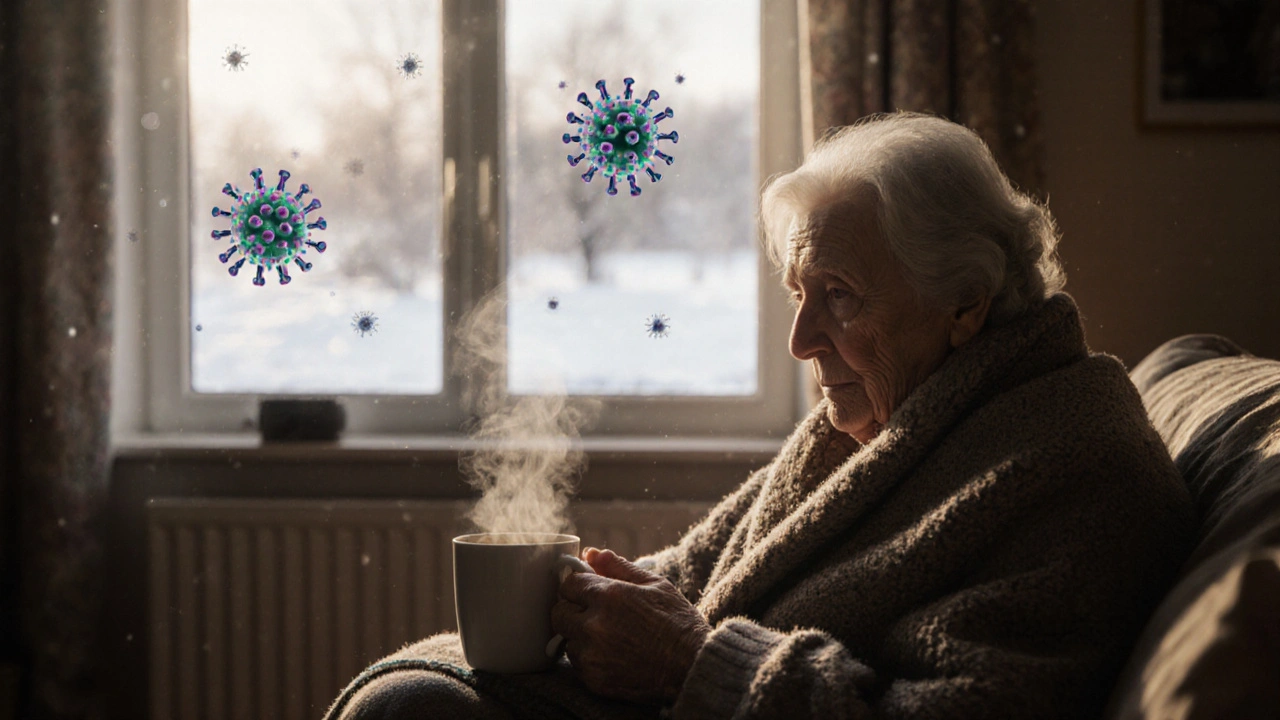Influenza Risk in Seniors
When winter rolls around, many older adults find themselves staring down a silent but serious threat. Influenza risk seniors, the increased likelihood of catching and suffering severe flu complications among people aged 65 and older. Also known as flu risk in the elderly, it matters because age‑related health changes make the flu far more than just a bad cold.
One of the biggest reasons this risk spikes is the natural wear‑and‑tear of the immune system, the body’s defense network that fights off infections. As we get older, the immune system’s ability to recognize and destroy viruses weakens, a process called immunosenescence. This decline means the same flu virus that might cause mild symptoms in a younger person can turn into a severe bout for a senior. In short, age‑related immune decline influences influenza severity, pushing older adults toward longer illness and higher complication rates.
Fortunately, the influenza vaccine, a yearly shot designed to prime the immune system against prevailing flu strains offers a powerful line of defense. Even though the vaccine isn’t 100 % effective, studies show it cuts the risk of hospitalization by up to 60 % in seniors. In other words, vaccination reduces influenza risk for seniors by giving their aging immune systems a much‑needed boost, often turning a potentially dangerous infection into a milder case.
The stakes get even higher when complications enter the picture. Seniors with high influenza risk are far more likely to develop pneumonia, experience heart attacks, or suffer from worsening chronic conditions like diabetes or COPD. These secondary issues drive a sharp rise in hospital admissions during flu season. Higher influenza risk in seniors leads to increased hospital admissions, which not only strains healthcare resources but also puts older patients at risk for additional infections and longer recovery times.
Beyond vaccines, everyday habits can tilt the balance back in favor of health. Good nutrition fuels immune cells, regular light exercise improves circulation, and simple hygiene—like frequent hand‑washing and avoiding close contact with sick people—cuts exposure. Together these steps create a supportive environment that good nutrition supports immune function, lowering influenza risk. When seniors combine vaccination with these lifestyle tweaks, they dramatically improve their odds of staying flu‑free or bouncing back quickly.
Below you’ll find a curated set of articles that dig deeper into each of these points— from vaccine options and immune‑boosting tips to managing flu‑related complications. Use them as a practical toolbox to protect yourself or a loved one this flu season and keep the risk of serious illness as low as possible.

